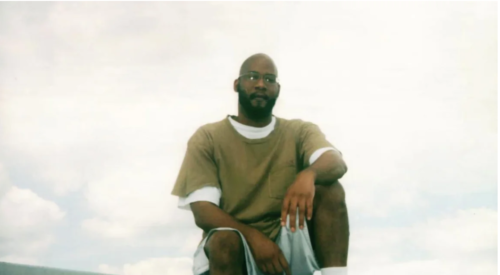As of 2023, 44% of Americans are opposed to the death penalty, marking the highest disapproval rate in history, according to Statista. The U.S. Department of Justice details two of the most common arguments against the death penalty to be its racial and economic biases, as well as the irreversibility of the punishment. These arguments have been given new life since the September execution of Marcellus Williams: a 55-year-old Black man convicted of murder despite numerous flaws in his trial and DNA evidence supporting his innocence. His case jarringly exemplifies the deep-rooted flaws in the U.S. criminal legal system, particularly in capital punishment cases, where racial prejudice can lead to false charges and eventual murder.
In 1998, Felicia Gayle, a social worker and former reporter for the St. Louis Post-Dispatch, was found dead in her Missouri home with 43 stab wounds and a knife embedded in her neck. Williams, who was in and out of prison for robbery and drug-related charges at the time, was convicted of her murder in 2001. His conviction relied heavily on the testimony of his ex-girlfriend, who claimed she saw a laptop and purse in his car. These items were from Gayle’s home. Later, she alleged that Williams had confessed to the crime in her presence. An ex-cellmate testified with similar claims. Notably so, these claims came 10 months after the murder, at a time when the Gayle family had offered reward money for information related to the case.
Williams faced two execution dates before his final one this September. In 2015, the Missouri Supreme Court delayed his execution to allow for DNA testing on the murder weapon, which had not been conducted before his conviction. The test results showed that the DNA found on the knife did not match Williams, yet he remained on death row. His 2017 execution date was postponed when then-Governor Eric Greitens appointed a board of five retired judges to review the case. The board was dissolved in 2023 and never issued a final report. Prosecutor Wesley Bell believed Williams to be innocent and sought to dismiss the conviction; however, Bell’s office received news that the DNA on the knife had matched that of a prosecutor who had worked on the original case and a former investigator with the St. Louis County Prosecuting Attorney’s Office. The prosecutor admitted to handling the weapon without gloves at least five times, claiming he believed the investigation had already concluded, thus spoiling the evidence.
In a January 2024 document titled “First Motion to Vacate or Set Aside Judgment and Suggestions in Support,” the Prosecuting Attorney of the 21st Judicial Circuit of Missouri described other key indications of Williams’ innocence. DNA from footprints and hairs at the crime scene, which did not match Williams, Gayle or her husband, further undermined the case against him.
According to court filings, Gayle’s family had voiced their opposition against the execution. In early August, a judge had signed an agreement to abandon it. However, Missouri Attorney General Andrew Bailey objected, and the State Supreme Court ordered an evidentiary hearing. During this process, the St. Louis Prosecuting Attorney’s Office acknowledged a “constitutional error of mishandling evidence” in Williams’ 2001 trial, noting “clear and convincing evidence” of several constitutional violations. One of said constitutional errors was highlighted on August 28th, when Keith Larner, who tried the 2001 case, admitted to removing a Black prospective juror because he “thought they (the juror and Williams) looked like they were brothers. Familial brothers,” he continued. “I don’t mean Black people.” Larner maintains that this decision was unrelated to race and that the jury, which was composed of 11 white people and one Black person, was a fair one. On Sept. 12, the judge continued with Williams’ conviction and sentence. Marcellus was murdered on September 24, 2024, via lethal injection. He maintained his innocence and died in the company of his son, two of his attorneys, and his Imam.
A 2015 study from the University of North Carolina Chapel Hill highlighted significant disparities in Missouri’s application of the death penalty, particularly by race and gender. The university found that cases involving white, female victims will receive more sympathy and thus harsher punishment than cases with Black, male victims. Homicides with white female victims are nearly 14 times more likely to result in the death penalty than those involving Black male victims. In the vast majority of murders, the offender and victim(s) are of the same race yet 54% of the African-American men executed by Missouri were convicted of crimes involving White victims. In a letter urging Governor Parson not to execute him, the NAACP stated: “Execution of Marcellus Williams would not be seen as just punishment for a crime. It would not be viewed as Missouri being ‘tough on crime,’ being ‘a law and order’ state or any other bumper sticker political rhetoric. Instead, taking the life of Marcellus Williams would be an unequivocal statement that when a white woman is killed, a Black man must die. And any Black man will do.”
The execution of Marcellus Williams illustrates the profound failure of the U.S. justice system to protect the rights of Black men, further proving that capital punishment in America is not administered fairly or reliably.






